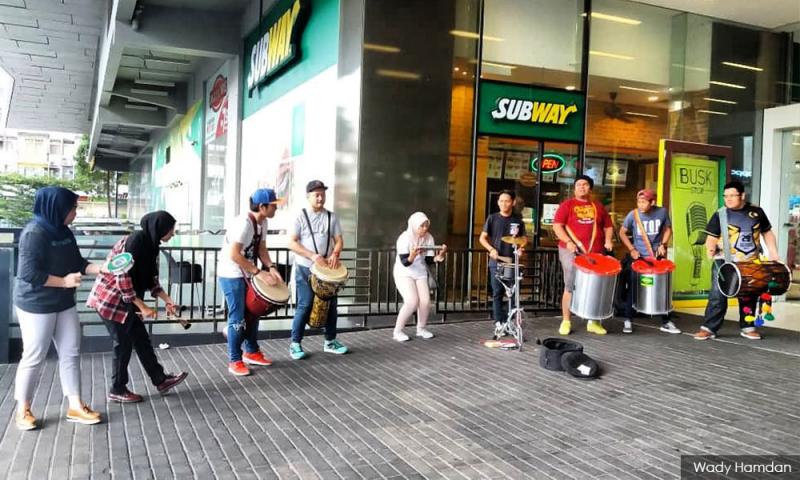Music of the streets
MALAYSIANSKINI | Performers everywhere have taken a hit, as live shows and events have experienced a strict clampdown under the movement control order (MCO).
While busking may not be thought of as a lucrative sector, Malaysian Buskers Club (MYBC) president Wady Hamdan estimates the industry’s loss as being more than RM10 million already.
Wady, who has 13,000 buskers and freelance performers under his umbrella body said that each day of non-performance means a substantial loss to the sector.
"Just take 1,000 buskers who could earn roughly RM200 a day. Well, throughout the first 50 days of the MCO, the buskers suffered RM10 million in losses cumulatively. This does not take into account the losses from cancelling invitations and events, especially shows during Ramadan at hotels, and Raya events," he told Malaysiakini.
Formed in 2013, the MYBC has endured many challenges to provide a support system and platform for buskers to perform in both private and public locations.
It even managed to get buskers to be allowed to perform at shopping malls, train stations and all the way to the airport.
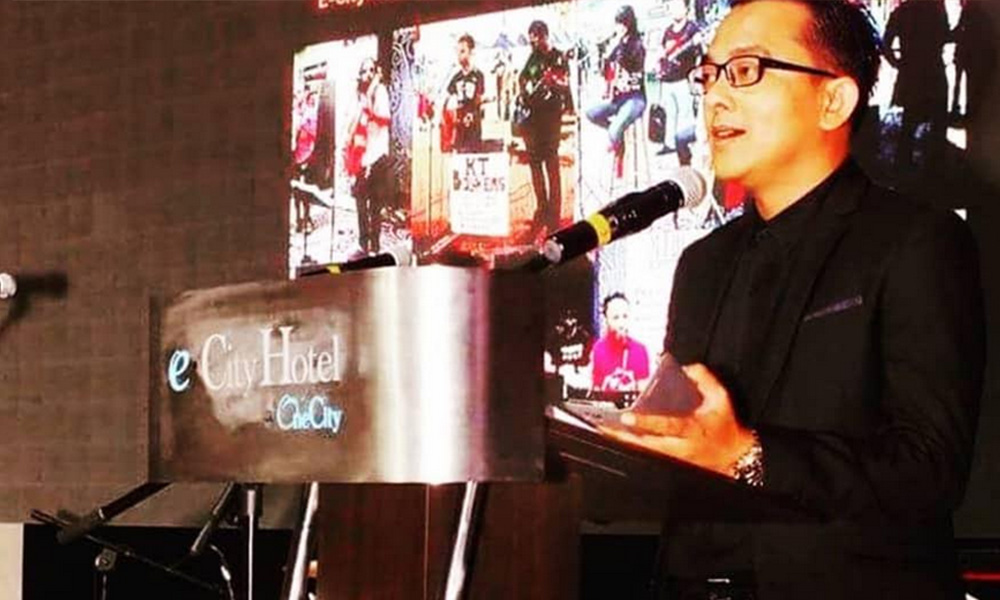
Due to the club's success, Wady (above) was invited all over the world to share his experiences in helping the buskers.
"The Indonesian government had also called us. Their buskers were very entertaining but there was no coordination among them, just like how Malaysian buskers were before the buskers’ club was set up" he said.
Getting started
Wady, who originally hailed from Kedah but grew up in KL, was actually in the property line prior to making busking a business. Describing himself as someone who loves to read and write, he had 20 years experience in marketing and sales.
He doesn’t see it as odd that he was not a busker himself.
“To contribute to the upgrading of a field, you don’t have to be a participant.
“I studied the potential of this sector and realised you just need to correct the people's understanding and change their perception and mentality into something more positive,” Wady said.
Wady shared the story of how he got the inspiration to form the club, which he claims is the first buskers' association in the world.
"The idea came spontaneously when I watched a group of buskers playing near Central Market.
"They were talented, but they had no steady income. They grew accustomed to being chased away by authorities and owners of private properties.
"Each busker was on his own. There was no coordination and I thought to myself that if only they had an association, they won't have to fight the daily battle alone," he said.
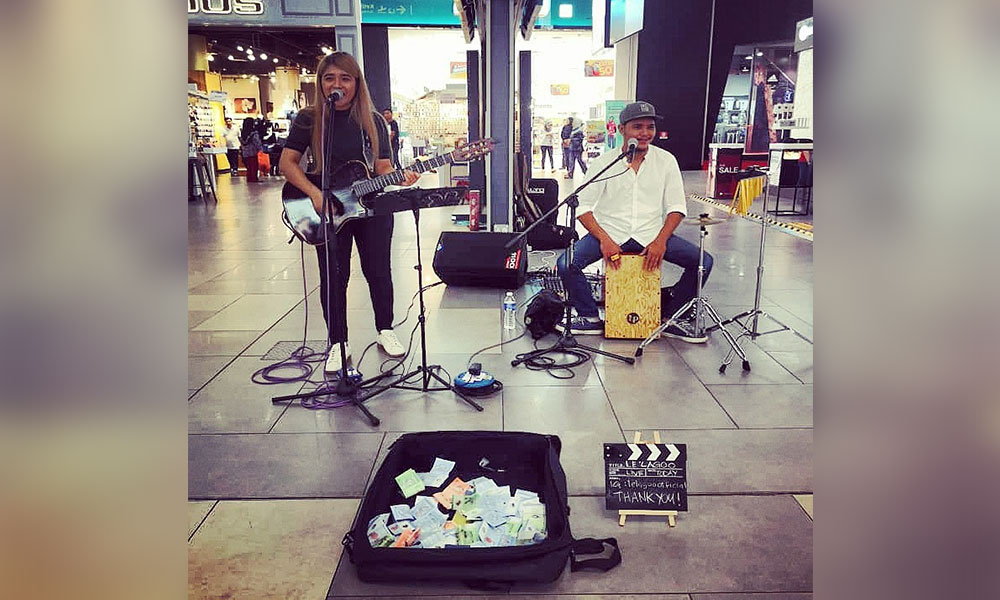
Wady said that the MYBC also made it compulsory for all of its members to go for a drug test to help improve the negative image of buskers.
Part of the larger community
Wady describes himself as a fan of all sorts of music, including Bryan Adams, Michael Bolton, Wings and Search.
He cited the Caliph Buskers, a band whose members are blind, as a fairly successful name within the performance sector.
“They were originally MYBC members and we helped them from the beginning. On the management side, we have renowned music composer Ramli MS and Wings guitarist Edrie Hashim as associate advisors.”
“When the Caliph Buskers began, they would just perform their songs. I asked them - why not interact with the audience and talk. They joked, 'We don't know if there is anyone out there or not!'"
Wady says he has seen huge audiences at busking performances.
“The busker is part of the larger community. In fact, in times of trouble in a community, charity busking is a common practice.
“The buskers’ community is often the focus of some political agendas. But I often encourage them to be more neutral because the people watching have different political views,” Wady said.
According to him, a breakdown of member statistics offers some interesting insights. Last year, 78 percent of the buskers were male and 22 percent were female. An overwhelming majority – 90 percent were Malay, compared to Chinese (six percent) and Indian (four percent).
More than 70 percent of them are aged below 40. “The breakdown is 18-30 years of age (45 percent), 30-40 (27 percent), 40-50 (18 percent), 50-60 (seven percent) and 60 and above (three percent),” he said.
Busking has its ups and downs, he added. “There have been cases of thieves stealing a busker’s tips. I've also seen a busker blowing a flute being watched by a father with a baby in the cart. The baby laughed to see the busker. Then his father gave RM300 to the busker because his son never laughed before!”
His advice to those who want to become buskers is to understand what a busker is.
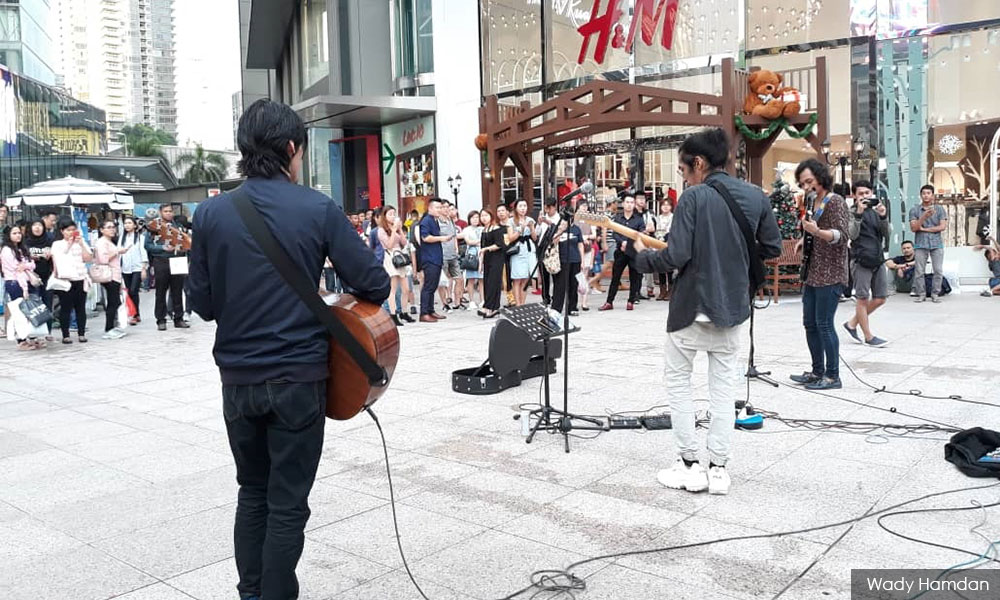
“Learn from the old people because they know better the life of a busker. Be creative and brave. A busker is not just a singer and musician but a community entertainer.”
Just before the MCO was declared in March, Malaysiakini had visited Wady and watched a performance by busker Sam Anthony Miguel, who serenaded the crowds at Canteen Cafe in Gombak at a time where the concept of social distancing was non-existent.
When Sam came to join the conversation, he shared with Malaysiakini that he could earn RM600 a night.
The MYBC, Sam said, was the answer for buskers like him to follow their musical passion full-time. He said it had even attracted mainstream artistes to become buskers as the earning was lucrative.
Overcoming obstacles for the future
However, Covid-19 and the MCO have changed everything. Wady's long-term plans for the association have taken a hit and he needs to restrategise.
Refusing to give up, Wady told Malaysiakini that he would fight on for the sector, which prior to Covid-19 had moved the economy and provided thousands of people with full-time jobs.
Even during the MCO, folk singer and legendary busker Meor Yusof Aziddin streamed his live performances online for the audiences at home.
Wady said he had recently managed to engage with the Multimedia and Communications Ministry and the Tourism, Arts and Culture Ministry to assist the busking sector, and had even met up with newly-minted minister Nancy Shukri.
“I’m optimistic as she agreed on a number of things, such as assisting the production of creative videos of buskers to tie-up with tourism and as a cultural element to continue promoting Malaysia.”
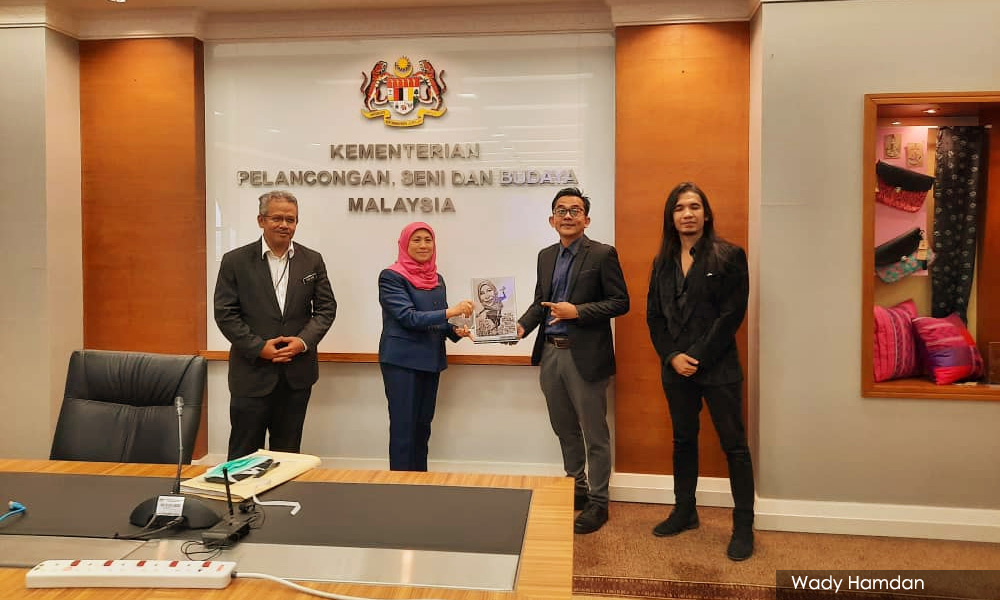
Wady said Nancy was also receptive to the idea of the proposed Malaysian Buskers Village and said she would consider suitable land for its development.
Furthermore, there is a proposed loan scheme that will also be considered by Nancy, he added.
"We were discussing the digital aspect, and the need to have a certain performing standard so we have more quality performances amidst the recession.
"Some SOPs will be introduced, such as only a solo busker or a group of two are allowed to perform.
"No band or loud noise that will attract people to gather and form a large crowd.
"Awareness messages will also be displayed during performances and the buskers will relay messages to the public about Covid-19 from time to time," he said.
Wady believes that from wandering minstrels to the present day, buskers have had a role to play and that the industry will still survive in the new normal - it just needs to navigate this difficult time.
MALAYSIANSKINI is a series on Malaysians you should know.
PREVIOUSLY FEATURED
Overcoming stigma so she can 'speak' for the deaf
Fighting for respect in the shadows of the frontlines
Huzir’s love letter to Malaysia
RM12.50 / month
- Unlimited access to award-winning journalism
- Comment and share your opinions on all our articles
- Gift interesting stories to your friends
- Tax deductable
